D'var Torah
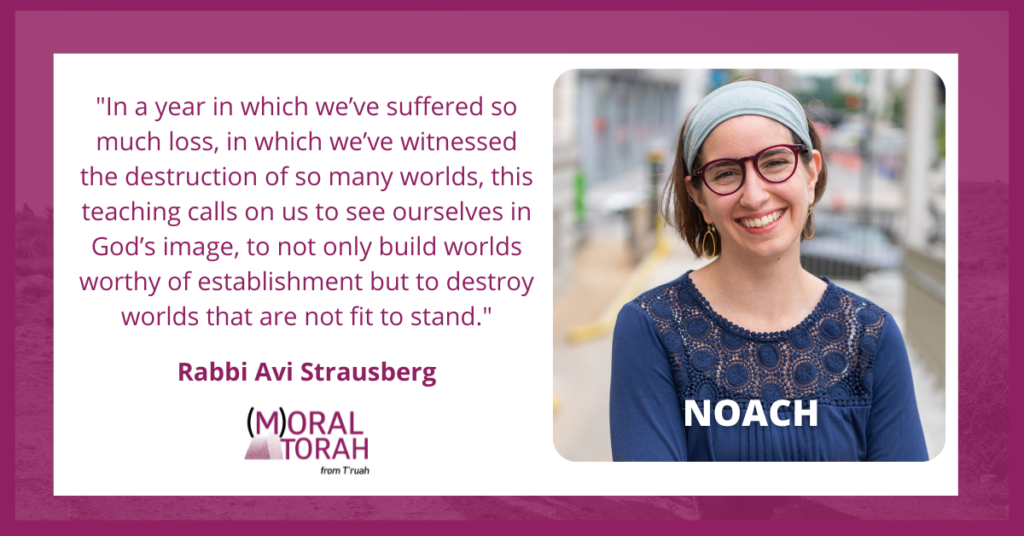
The Wisdom of Destroying Worlds
In a year in which we’ve suffered so much loss, in which we’ve witnessed the destruction of so many worlds, this teaching calls on us to see ourselves in God’s image, to not only build worlds worthy of establishment but to destroy worlds that are not fit to stand.
more
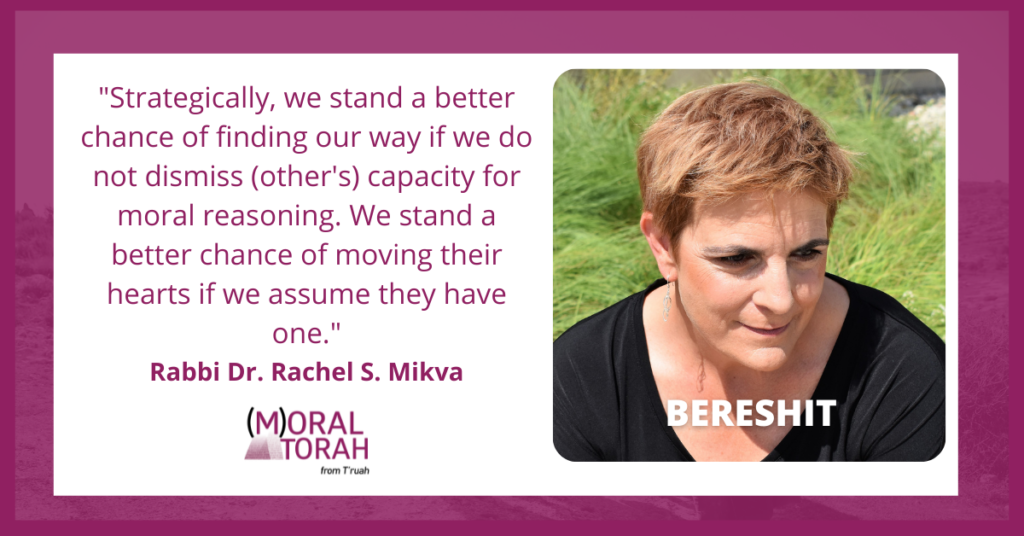
A Pandemic of Polarization
Strategically, we stand a better chance of finding our way if we do not dismiss (other's) capacity for moral reasoning. We stand a better chance of moving their hearts if we assume they have one.
more
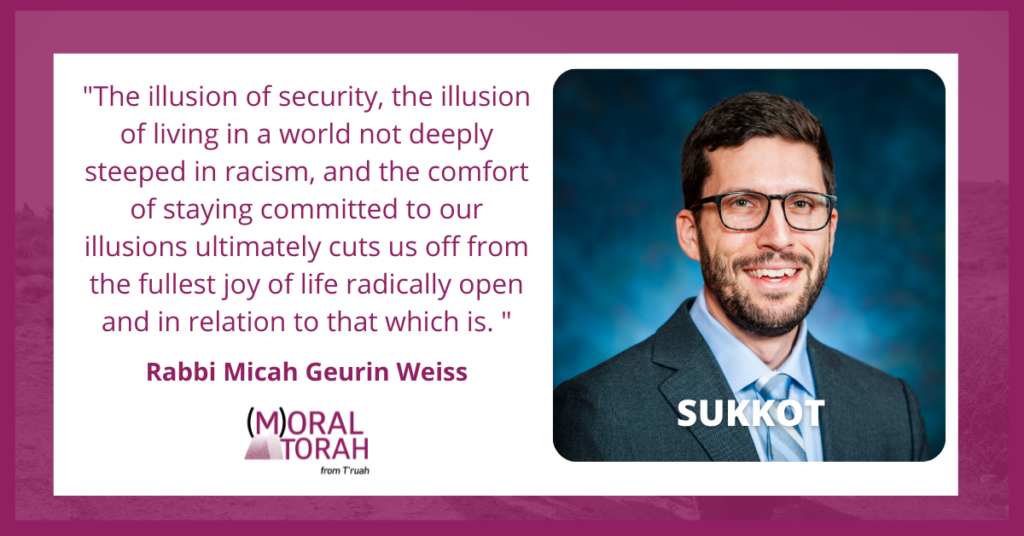
The Pathway to Joy Begins in Discomfort
The illusion of security, the illusion of living in a world not deeply steeped in racism, and the comfort of staying committed to our illusions ultimately cuts us off from the fullest joy of life radically open and in relation to that which is.
more
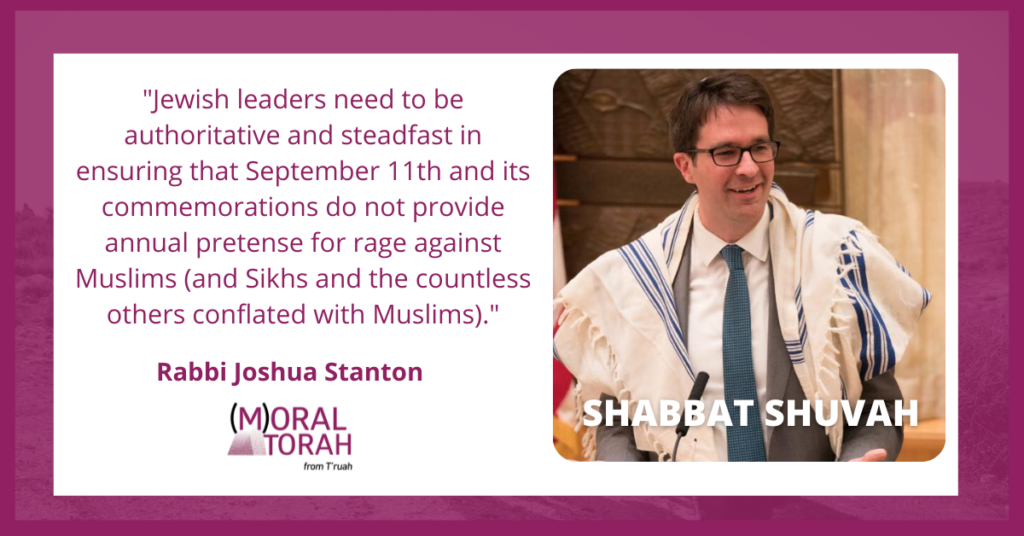
When Grief Turns to Rage
Jewish leaders need to be authoritative and steadfast in ensuring that September 11th and its commemorations do not provide annual pretense for rage against Muslims (and Sikhs and the countless others conflated with Muslims). Nor can we allow political opportunists to seize upon our unresolved grief and pain once again.
more
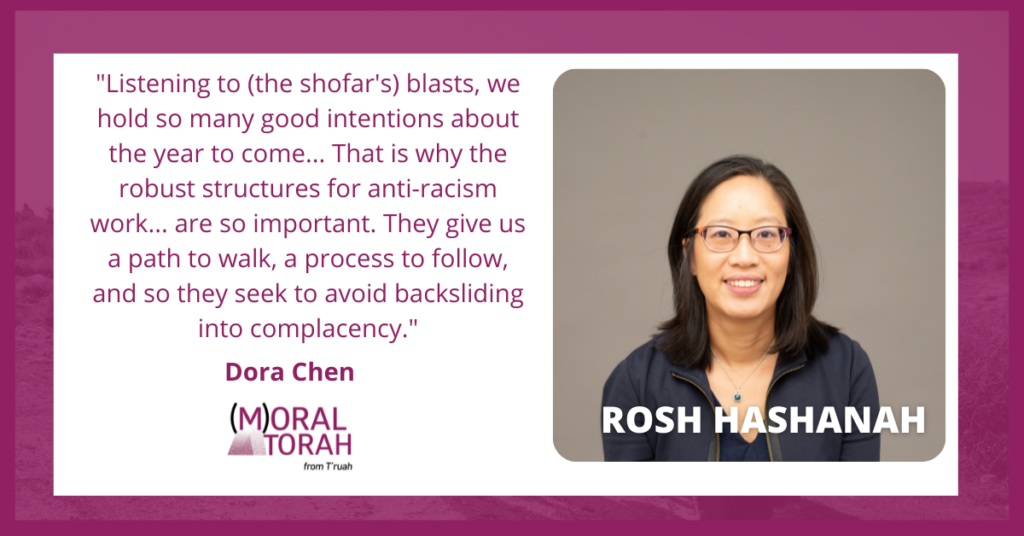
How to Make Our Racial Equity Commitments Endure
Listening to (the shofar's) blasts, we hold so many good intentions about the year to come... That is why the robust structures for anti-racism work... are so important. They give us a path to walk, a process to follow, and so they seek to avoid backsliding into complacency.
more
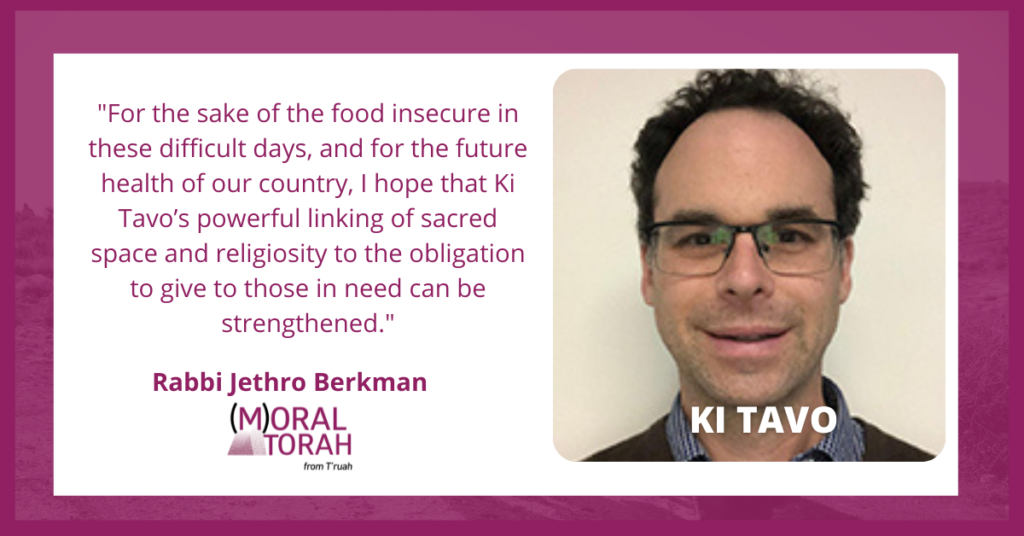
Cultivating a Culture of Giving
For the sake of the food insecure in these difficult days, and for the future health of our country, I hope that Ki Tavo’s powerful linking of sacred space and religiosity to the obligation to give to those in need can be strengthened. As Americans increasingly seek spirituality and community outside of organized religion, community builders, religious and non-religious alike, must work to cultivate cultures of giving.
more
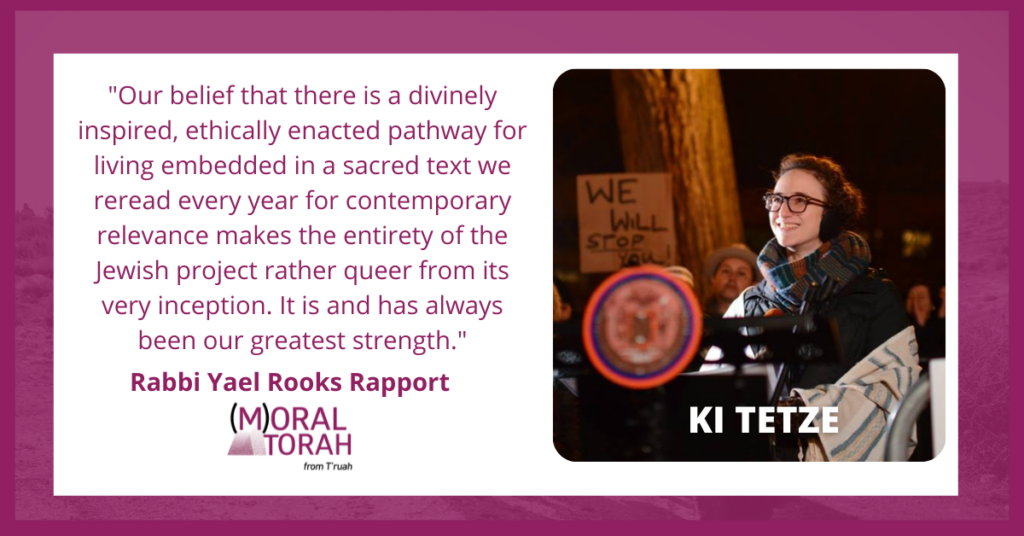
Turning Our To’evot Inside Out: Queering the Torah’s Commandment on Gendered Clothing
Our belief that there is a divinely inspired, ethically enacted pathway for living embedded in a sacred text we reread every year for contemporary relevance makes the entirety of the Jewish project rather queer from its very inception. It is and has always been our greatest strength.
more
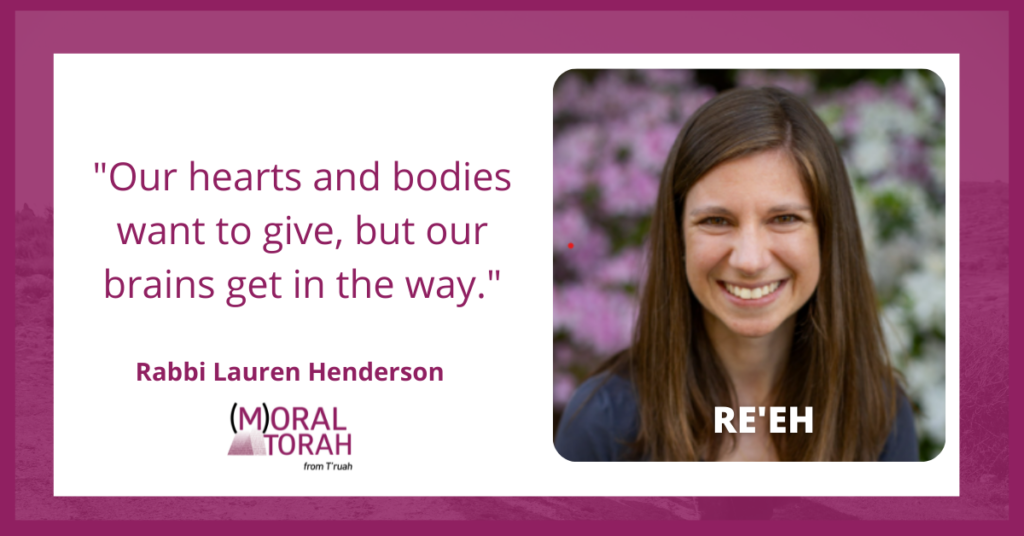
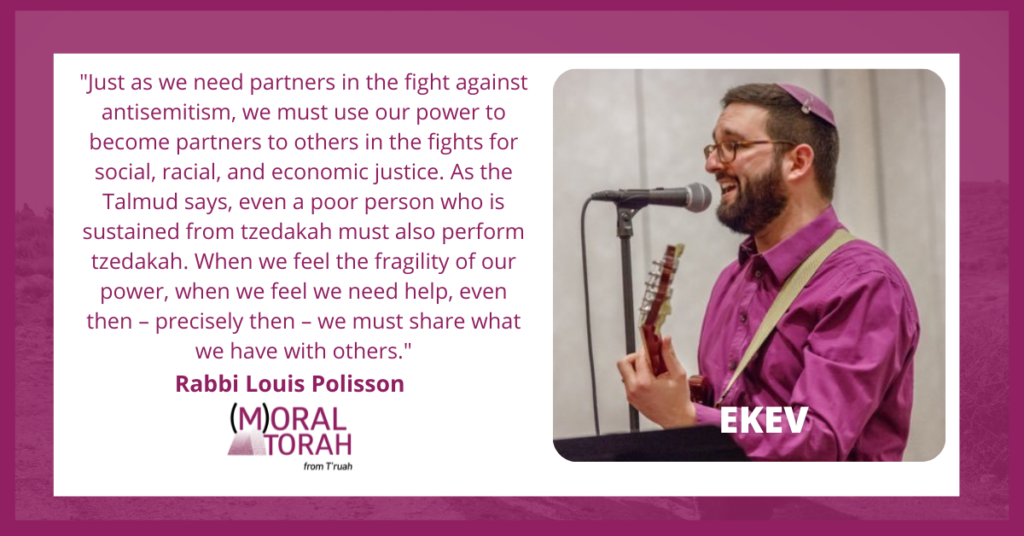
Our Wealth is Not Our Own: What Is Jewish Power For?
...the Torah teaches us that the particular and the universal are inextricably intertwined. Just as we need partners in the fight against antisemitism, we must use our power to become partners to others in the fights for social, racial, and economic justice. As the Talmud says, even a poor person who is sustained from tzedakah must also perform tzedakah (Gittin 7b). When we feel the fragility of our power, when we feel we need help, even then – precisely then – we must share what we have with others.
more

Holding the Space
We were told earlier in the Torah to love our neighbor and even the stranger as ourselves. But these commandments are included and yet reframed in our mitzvah, "V’Ahavta et Adonai," love everything/everyone. Signaling, perhaps, that we are also to understand love differently, that we are ready to learn a higher level of embodying love.
more
